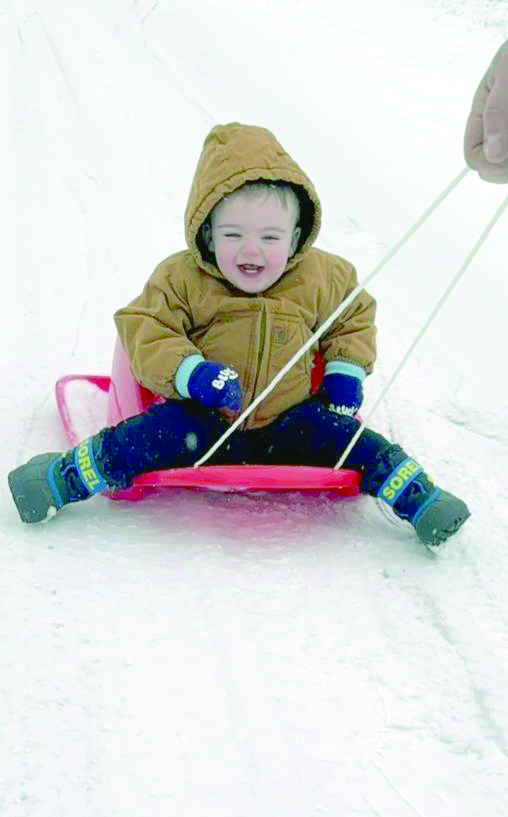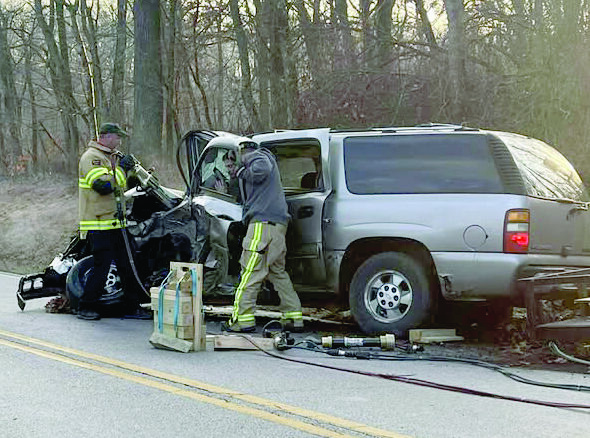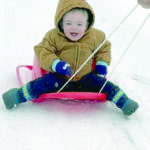Barry County Neighborhood Center to close Sept. 19
OACAC services going through Branson; Beck hopes to save other services
BY KYLE TROUTMAN [email protected]
After 56 years of operation, the Barry County Neighborhood Center that serves more than 700 low-income Barry County residents and about 450 families a year is scheduled to shut its doors.
Carrie Beck, family resource specialist at the Neighborhood Center, which runs under the Ozark Area Community Action Corporation, said the facility on Sale Barn Road will close on Sept. 19 due to funding cuts to the Community Services Block Grant (CSBG), which supports neighborhood centers across 10 counties.
“What’s happening with our funding is the CSBG is what funds neighborhood centers all across 10 counties,” Beck said. “And what has happened is, normally, the funding rates are based on the poverty levels from three years prior. In 2020, federal COVID relief programs, including the CARES Act, impacted how many people reported needing assistance, artificially lowering the poverty rate used to determine current funding.
“Food boxes were being handed out more, and people were being sent checks from the government. So, there weren’t as many people reporting in for needs, which then changes the demographics and statistics of what we have.”
As a result, Barry County’s poverty rate dropped from the usual 18.5% to just over 12%, leading to a drastic reduction in funding.
“That dip in poverty rate equated to a couple hundred thousand dollars of funding — $170,000 I think it was,” Beck said. “That is for all neighborhood centers, not just here.”
Compounding the issue, Beck said the future of the CSBG itself is uncertain.
“Now, with the current administration in the White House, CSBG is on the chopping block altogether,” Beck said. “It’s not just a matter of facing cuts. We also have a big possibility that there is no community service block grant whatsoever.”
According to Beck, federal officials are citing program misuse as justification for potential elimination.
“It has been exploited for DEI, it’s been exploited for clean energy,” Beck said. “It’s being stretched in ways that was not the original intention. They always ask us how much is going to direct services, and we have to fundraise for that because all our federal funding goes to operations.”
The funding shortfall means neighborhood centers across the region will be closing, including Barry County’s, and operations will shift to a hub-based model.
“What they’re going to be going to is a system where there’s three main hubs,” Beck said. “There will be a northern hub in Bolivar, a central hub in Springfield where our central office is, and a southern hub in Branson.”
Rather than walk-in centers, family resource specialists (FRS) and other staff will travel to clients by request.
“There’ll be phone lines that you basically call in if you need someone to come to you to help you fill out an application, need assistance, need case management or need family support,” Beck said. “They will send you out an FRS that will meet you where you are.”
While that will continue assistance for programs like LiHEAP, Section 8, Head Start, family planning or weatherization, the Barry County Neighborhood Center has long offered services beyond those provided by other counties, thanks in part to strong community partnerships.
“We are unique in the neighborhood centers,” Beck said. “We have, with the help of the community and the public, built this up to meet different needs.”
Losing the physical location means losing those unique services, including a clothing room, food distribution and seasonal item donations.
“Since we’re losing the physical building, we will lose all of that,” Beck said. “Everything here is free. All they have to do is go through an intake. We evaluate where their income is, and we serve any family in Barry County that is at 200% of the federal poverty level.
“We do appointments for that clothing room on Tuesdays and Wednesdays and Thursdays every week from nine to noon, and I have volunteers that run it. I’m pretty much full all the time.”
She said the Neighborhood Center also distributes donated seasonal items from Walmart.
“We pack all that stuff up that’s really good for the next year, and we would bring it out ahead of those holidays for our families,” Beck said. “Christmas decorations, Easter egg coloring kits, Easter eggs—all of that’s free to them.”
The center has also provided custom aid to the homeless population, including food tailored to their living conditions.
“We would unpack those boxes, see what everything was and spread it out,” Beck said. “If I have somebody that’s sleeping in their car that doesn’t have a way to cook, you gear a food box towards them. I’m not going to give somebody sleeping in their car a raw chicken.”
Beck said the closure will also impact long-standing community programs.
“OACAC partners with the community here with Share Your Christmas,” Beck said. “We’ve handled the intakes and stuff for all of those kids and all of those families for years and years now. From what has been communicated to me by the Share Your Christmas board, the new structure of OACAC is not very conducive to running Share Your Christmas. That board is going to be looking for somebody else to facilitate it.”
Last year, Share Your Christmas provided gifts for 325 children, and the Back to School Extravaganza, set for Thursday, will provide school supplies to 182 students across Barry County.
Beck said while some of the programs continuing under the OACAC hubs are seeing budget streamlining, she doesn’t expect them to be eliminated.
“I have a very, very hard time imagining those programs (LiHEAP, Section 8, Head Start, family planning and weatherization) ever being eliminated fully because of the amount of elderly and disabled that they serve,” she said.
Beck emphasized the relational nature of the Neighborhood Center’s work, particularly in her role as a family resource specialist.
“We look for resources,” she said. “We evaluate their life, where they’re at, what the needs are, and how we can help support them to make some changes.”
Assistance goes beyond food and clothes, extending to education and addiction recovery.
“If you’ve got somebody that needs a GED, we’re going to get them plugged into a GED program,” Beck said. “If someone in the family is fighting substance abuse of some kind, we’re going to plug them into that resource.”
Beck said many of the center’s volunteers are former clients.
“It’s a lot of people we’ve helped that come back,” she said.
With the closure date looming, Beck is working on new solutions.
“I am working on other nonprofit opportunities,” Beck said. “We are putting our heads together to get some kind of a community resource center here in Cassville, since we are the county seat.”
Beck said a future local non-profit could continue many of the services currently offered, such as Share Your Christmas, school supply drives and clothing assistance.
“We can make an impact here,” she said. “I really do believe that. There are going to be some announcements coming.”
In the meantime, residents needing help will need to contact the central office or check OACAC’s website or Facebook page for updates.
“They’re going to call the central office,” Beck said. “One of the easiest ways to see the updates for that is to check the OACAC website, oac.ac, or their Facebook page.”
Though some counties may host limited satellite offices, Beck said Barry County is in a tough position.
“In Barry County, this is a big deal, because we see the need around here on our streets,” she said.
Beck said after Sept. 19, the Neighborhood Center phone number will not be functional. People needing assistance may call the OACAC office at 417-862-4314.




